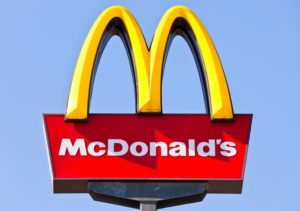
The National Labor Relations Board Office of General Counsel issued what is considered by many to be a controversial finding on July 29th, 2014. This finding stated that McDonald’s could be named a joint employer respondent under the NLRB. For the complete statement, click here. The finding came after the NLRB received charges alleging that McDonald’s and its franchisees violated employees’ rights when actions were taken against some employees who had actively participated in protests against their employer. The result of the investigation has made waves in the labor and franchise industry.
Between November 2012 and the ruling in July 2014, the NLRB received 181 filings involving McDonald’s. Some of these cases were found to have no merit. For the cases that did have merit, the NLRB has filed complaints against some franchisees and franchisor McDonald’s USA, LLC as joint employers. By December 19th, 2014, the number of charges filed with the NLRB had increased to 291 at which time the NLRB filed 13 complaints against McDonald’s and/or its franchisees. For the complete statement about the complaints, click here.
The complaints filed include charges against McDonald’s and its franchisees for various retaliatory and discriminatory conduct and restrictions against employees who participated in union and other protected activities regarding employment terms and conditions. The conduct included cutting employees’ hours, discipline, and threats to employees.
In March 2016, hearings began in New York before an administrative law judge regarding whether McDonald’s should be held liable as a joint employer for labor violations committed by franchisees. Hearings will also be held in Chicago and Los Angeles. The decision by the administrative law judge can be appealed to the NLRB and then in federal court. It is likely to continue to be a lengthy process before a final outcome is reached.
NLRB attorneys argue that franchisors exert a significant amount control over franchisees and therefore should be held responsible for the working conditions that franchisors help to create. They argue that McDonald’s controls the operations of the franchise from the scheduling of responsibilities at the franchise to the software and should be held responsible for the working conditions created.
On the other hand, McDonald’s attorneys argue that franchisees are independent and that the franchisor does not control employment conditions such as wages, benefits, or schedules. Franchisees have also provided arguments that franchisees control and run their franchised restaurants and are not required to turn to the franchisor for employment decisions such as pay or hiring employees.
The NLRB ruling is causing a major stir in the franchising community because McDonald’s could now be held liable for labor violations on the part of its franchisees.
Previously, franchisors like McDonald’s have been safe from the actions of franchisees because franchisors do not control employment decisions. The new ruling groups the franchisors and franchisees as joint employers which means that both parties could be held accountable for how the employees are treated.
In Laerco Transportation, 269 NLRB 324 (1984), a previous NLRB decision, the NLRB found that to be a joint employer “there must be a showing that the employer meaningfully affects matters relating to the employment relationship such as hiring, firing, discipline, supervision, and direction.” Extending the definition of joint employer to include franchisors like McDonald’s changes who could face liability for labor violations that exceeds the previous definition of joint employers.
If franchisors continue to be recognized by the NLRB as joint employers, the franchise industry could suffer serious effects in the long term. Franchisors may face greater liability and responsibility in labor actions, changing the franchising relationship due to increased legal exposure. Franchisors may also be motivated to relinquish some control over their franchisees in order to reduce the risk of being considered a joint employer and facing further liability.
The trusted Mesa business lawyers at Denton Peterson can assist you with questions pertaining to franchise law, as well as employment law, litigation and more.
If you have questions about the NLRB actions and how they might affect your business, contact the experienced business attorneys at Denton Peterson.
Brad Denton – Denton Peterson, PC
1930 N Arboleda #200
Mesa, AZ 85213
Office: 480-325-9900
Email: brad@dentonpeterson.com
Website: dentonpeterson.com
Are you dealing with labor law violations regarding trade secrets? Consult with employment law experts…
Wondering how to protect trade secrets in litigation? Learn strategies for early identification, specificity, and…
Want to protect your business from liability and disputes? Learn effective contractual tools and legal…
Concerned about embezzlement in your business? Learn how to safeguard against theft, understand legal distinctions,…
How is remote work reshaping commercial real estate? Explore how businesses are adapting leasing strategies,…
Is your business ready for remote work? Learn the legal considerations & best practices for…